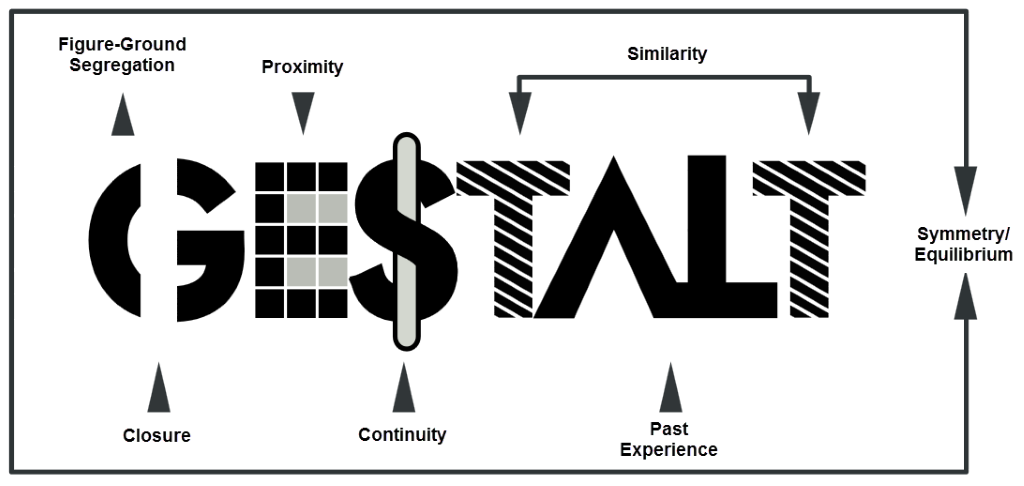There is a great clip online of Neil deGrasse Tyson describing optical illusions as “Brain Failures.” Like most of Tyson’s appearances its played for laughs while secretly teaching you about science, but analysts know this true. So true in fact that the great Richard Heuer wrote a manual for the CIA on how to over come cognitive bias called the Psychology of Intelligence Analysis.
Heuer explores “brain failures” by dichotomizing the causes and exploring the effects. I will likely come back and explore each of those in more detail as they are fascinating! But the underlining question is why do our brains fail? The easy answer is because they are simple. We don’t need to look any farther than the Gestalt principles of perception which form the foundation of many optical illusions. Wikipedia describes as Gestalt psychology as “an attempt to understand the laws behind the ability to acquire and maintain meaningful perceptions in an apparently chaotic world. The central principle of gestalt psychology is that the mind forms a global whole with self-organizing tendencies.” If we see something complex, our brain simplifies and encompasses the entirety of it in order to make a judgement.

Look at the examples of Gestalt principles above and watch your brain do back flips trying to make sense of what it is seeing. Most Gestalt principles boil down to what is known as edge discrimination, the concept that there is a finite area our eyes can perceive until then need to ‘flip’ to the next image. Look at the example of figure-ground segregation, also known as Multistability or even more commonly found in the Ruben vase. Our eyes are unable to see both the ‘G’ and the missing line together. We know they are both there, but our eyes focus on one object at a time.
As Obi Wan adage warns us “your eyes can deceive you, don’t trust them.” And what does this mean for intelligence? I interpret it as our best attempt to make sense of a world that we can only partly perceive and understand, just like intelligence tries to do. The big picture is never known and cannot be known. The sure number of filters that information passes before it reaches our decision making centre it overwhelming. Only when we become cognisant of our biological limitations, how our human perception works, and our malignant cognitive biases will we have the skills necessary to make better decisions with the information at hand. It’s a tall order, and yeah, it’s a lot of work. But in a ‘post-truth’ world, accurate and precise information it not only a precious commodity but can be weaponized against those who don’t or refuse to discriminate their information sources. Because knowledge is power!
Not specifically related, but I do recommend the Intelligence Matters podcast hosted by former CIA deputy director Michael Morell. The podcast often tackles the issues of perusing vetting intelligence and the ideals of truth in a world of ‘fake news.’ If you are interested in the policy and application of intelligence I highly recommend the show.
